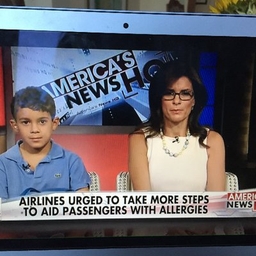
Food allergies pose a significant public health issue, impacting millions globally. In spite of the serious outcomes linked to allergic reactions, they frequently get downplayed in media representations, especially in Hollywood. This article underscores the risks of transforming food allergies into a comedic element and the implications this has on the perception and treatment of individuals with food allergies.
Lianne Mandelbaum, a leading advocate for food allergies, expresses concerns regarding the media’s misrepresentation of food allergies, particularly pointing out cases where severe allergic responses like anaphylaxis are portrayed in a humorous light. Mandelbaum, whose son suffers from a life-threatening food allergy, emphasizes that such depictions foster a perilous misconception of the condition and lead to bullying and a lack of seriousness in settings like airlines, schools, and restaurants.
Anaphylaxis is a swift, life-threatening allergic response that necessitates prompt medical attention, typically through an epinephrine auto-injector. Media representations that mishandle or downplay the severity of this condition can result in public misunderstanding, reducing the urgency required in critical situations where time is crucial.
The effects of these representations go beyond simple misunderstanding. As per Mandelbaum, they help cultivate a culture of disbelief and trivialize the challenges that individuals and families managing food allergies face. This culture of minimization has tangible consequences, illustrated by episodes of bullying where allergens are wielded as a weapon against allergic individuals. Such actions can lead to severe, even life-threatening, outcomes.
Mandelbaum advocates for a shift in how food allergies are portrayed in media, calling for accurate and respectful representations. These adjustments are not only about dignity but are vital for public health, as they can influence societal attitudes and behaviors toward those with allergies.
In summary, addressing food allergy humor in media demands cooperative efforts from allergy advocates, healthcare professionals, and the public to enhance understanding and promote safety for those affected by these serious conditions. Accurate media representation is a vital step towards reducing stigma and ensuring that food allergies are viewed and treated with the seriousness they deserve.